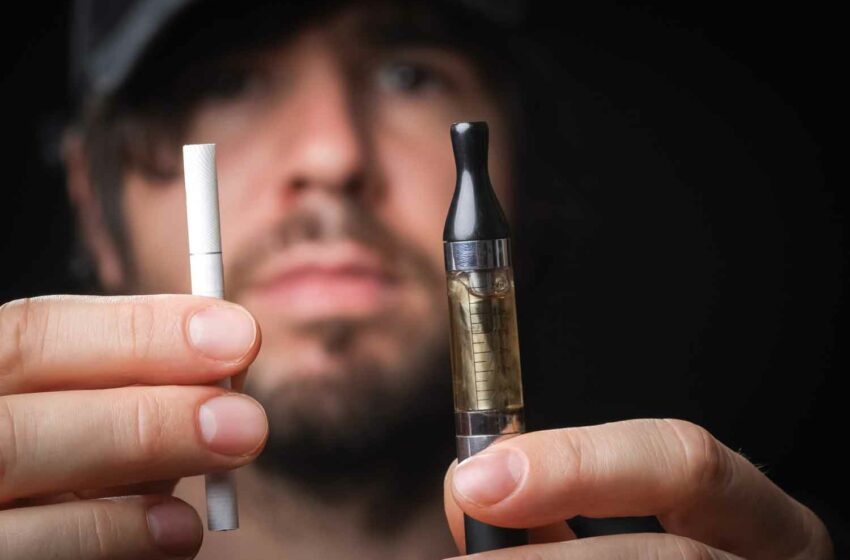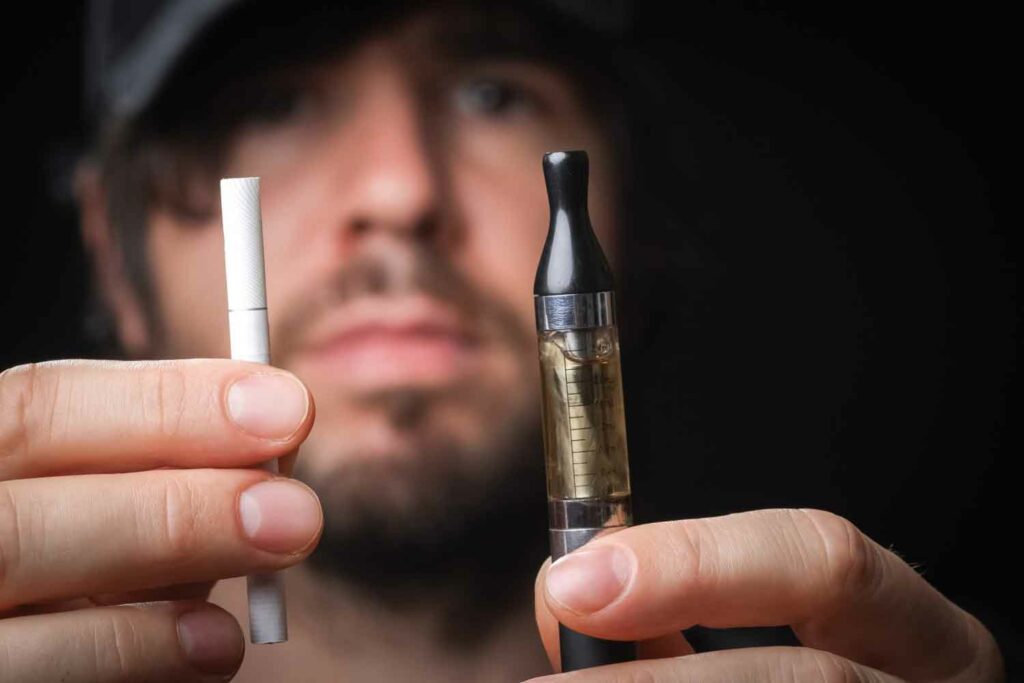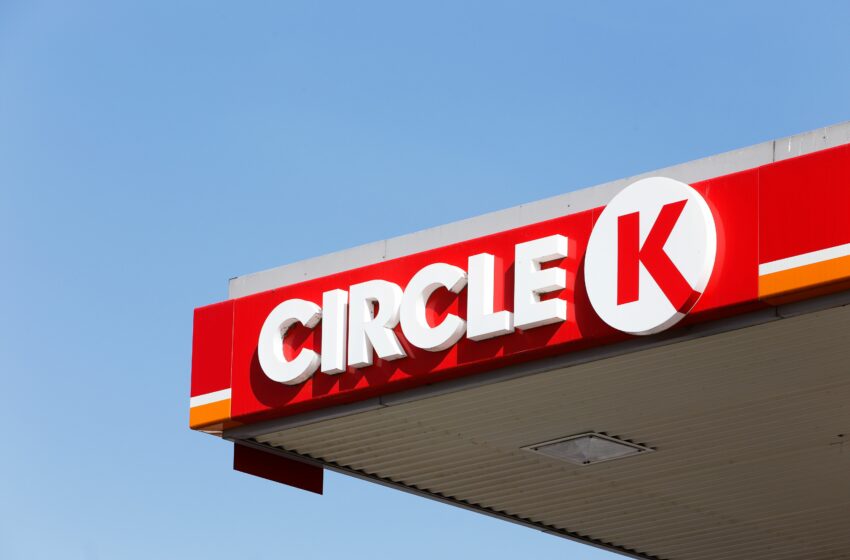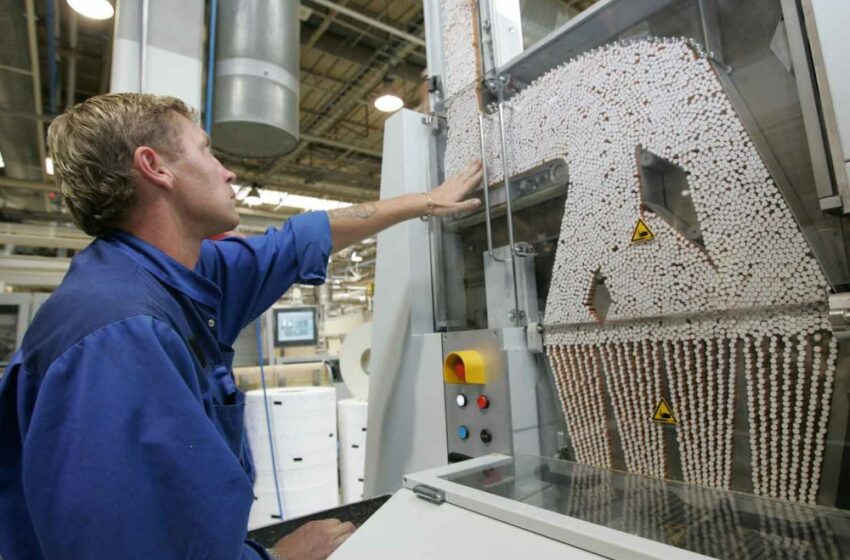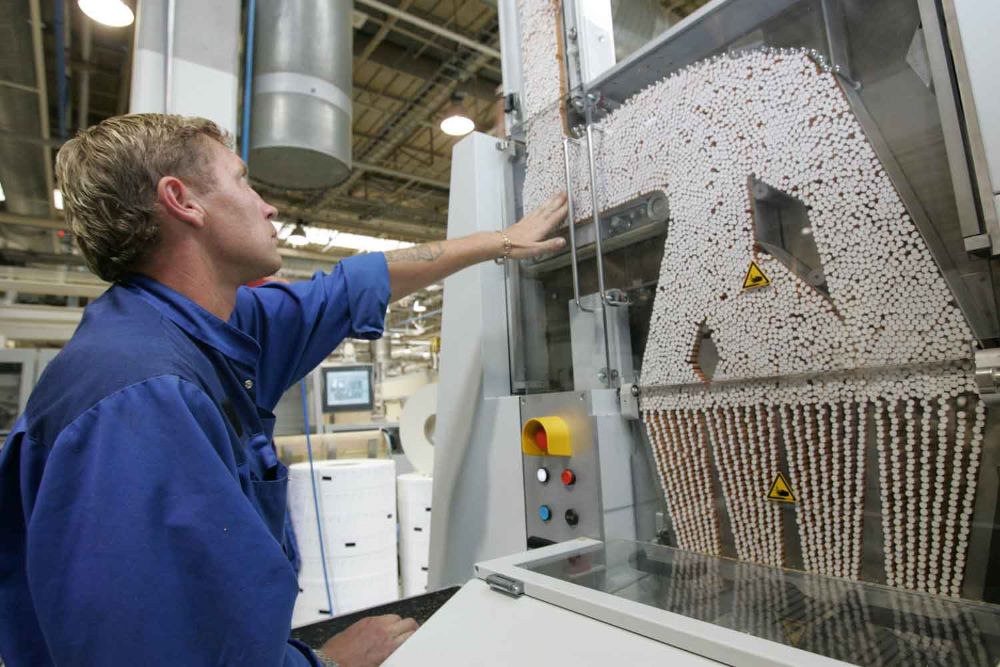The year’s first and largest trade show, the Total Products Expo, continues to broaden its reach.
By VV Staff
This year’s Total Products Expo (TPE) was the largest show yet. Nearly 570 exhibitors were visited by an estimated 14,000 visitors. Held from Jan. 30 through Feb. 2 at the Las Vegas Convention Center, TPE 2024 increased its show floor by 27 percent, and many vendors said that sales through the end of Thursday (with one day remaining) had already surpassed sales from the last few years.
TPE is often a launching point for new products. Several brands had numerous different types of product debuts during the show, including some not-so-new innovations for disposable products. Spaceman, for example, showcased its latest product, the Spaceman Prism 20K. The new disposable device offers a 1.77-inch smart screen that provides more intuitive information, including displays for e-liquid and battery levels and the current mode in use. The three-mode switch offers consumers a more personalized and customized vaping experience.
“Technologically, electronic devices are becoming more interactive with diverse features, and they are accommodating larger tank capacities based on consumer demands,” according to Maryna Gudym, business development manager with Wingle Electronics Group, a consulting company focused on innovative products. “Disposable devices amalgamate the best features from previous pod mod and box mod devices, showcasing a revival of old technology trends in a new form factor.”
Many products presented at TPE followed the growing trend of merging of e-cigarette and oil vaporizer platforms, e.g., universal pod system for oil and nicotine replacement pods by BO Vape USA. There are two main methods of merging electronic device platforms: 1) within own brand: develop universal battery supporting different consumables and 2) cross-support: develop a universal battery with adaptors to fit competitor consumables (pods, 510 carts). Both methods were on display during TPE 2024.
The vaping industry is witnessing innovations in device construction and extended features that enhance user convenience and experience, according to Gudym. Examples include devices with touch screens, large color displays, dual mesh coils and unique features like vibration feedback and magnetic connections, allowing users to customize flavor combinations.
Disposable pods are becoming increasingly sophisticated, integrating innovations such as rapid charging and new smarter technologies such as dual mesh coils. The innovations make it possible to design devices with a larger capacity and improve the taste. “This trend indicates a movement toward better quality and functionality in market offerings,” Gudym said.
Chapo Extrax, a cannabis company, is expanding its market horizons by releasing a vape in partnership with Blue Lotus extract, a nicotine-free and THC-free product popular among DIY vape enthusiasts but rare in prefilled vape products, according to Gudym.
There is also notable interest in alternative substances, such as ephedra-powered energy shots, kratom shots and kratom pouches, signaling the market’s exploration of new, modern ways to meet consumer needs with low or absent psychoactive impact. Additionally, the market is expanding beyond traditional vapes to include branching out into other tobacco segments with products like electronic hookahs. Several China-based companies are studying the demand for hookah and shisha tobacco and are offering new developments within the product segment.
Vaping, particularly the disposable pods market, shows a strong trend toward improving product quality and expanding the product range to meet growing consumer demands and preferences. Several products had LED displays, several power output modes, new coil designs, larger liquid capacities, etc. Interestingly, Hangsen, a China-based e-liquid supplier, stated that the current bestselling e-liquid flavors in the U.S. vape market are Mint Candy, Raspberry Ice Cream, Watermelon Ice, Strawberry Kiwi, Blue Razz Lemonade and Tangerine Blackcurrant, according to Wingle Group.
In manufacturing, most of the represented China-based factories are slowly switching to free-flow tank designs, which provide better e-liquid utilization and better flavor release but at the same time increase requirements for tank sealing and urge to install heater-liquid separation mechanisms or novel e-liquid supply designs.
Smoore announced it partnered with two new U.S. vape brands, Fasta (Reazen Tech Limited) and Aroma King’s Boss Bar. Smoore promoted its nonrechargeable devices with Power Alpha battery technology (nonrechargeable chemistry LiMnO2 3.0 volts). The batteries are supplied by EVE Energy. Power Alpha is a charge-free solution for large-puff disposable devices that solves issues disposable vape users face, including short battery life, charging inconvenience, fading flavor and a burning taste after recharging.
FEELM, a vaping industry leader in closed-system products and a subsidiary of Smoore, launched the first charge-free disposable vaping system. The Power Alpha 2.0 solves the problem of needing repeated charging in the large puff vapes currently popular on the market. FEELM started developing the charge-free battery technology to empower large-puff vapes as early as 2022. The previous version of the company’s original Power Alpha technology could only support 6,000 puffs without charging.
Also, during the show, Chemular, a leading provider of regulatory and compliance solutions to the tobacco, nicotine and medical device industry, announced a strategic partnership with IGEN, developers of a widely used platform designed to navigate compliance and reporting requirements in heavily regulated industries, according to Wingle Group. The two entities are creating a new “compliance as a service” platform focused on streamlining the burden of compliance for small-sized to medium-sized companies who need turnkey solutions for the Prevent All Cigarette Trafficking Act, excise tax reporting and registration services.
“The time and effort required to stay compliant with federal, state and local laws is increasingly burdensome for small-[sized] to mid-sized companies in regulated categories,” said Jason Carignan, chief commercial officer of Chemular. “Except for larger players, most companies don’t have a dedicated compliance officer who can ensure every regulatory detail is addressed so their products can stay on the market—especially in industries like ours, where the rules change rapidly. Chemular, now powered by the IGEN backbone, will be able to significantly scale its turnkey compliance service offering to a growing portfolio of tobacco manufacturers and distributors.”
A cool new concept that launched during TPE 2024 came from Fresor when the company unveiled its Fresor NOVA Technology and its latest disposable, Fresor N10000. It is the first large-capacity transparent disposable vape. Consumers will no longer “face uncertainty about the remaining e-liquid levels,” according to a Fresor representative.
Total Product Expo 2025 will take place Jan. 29–31, 2025, at the Las Vegas Convention Center.







